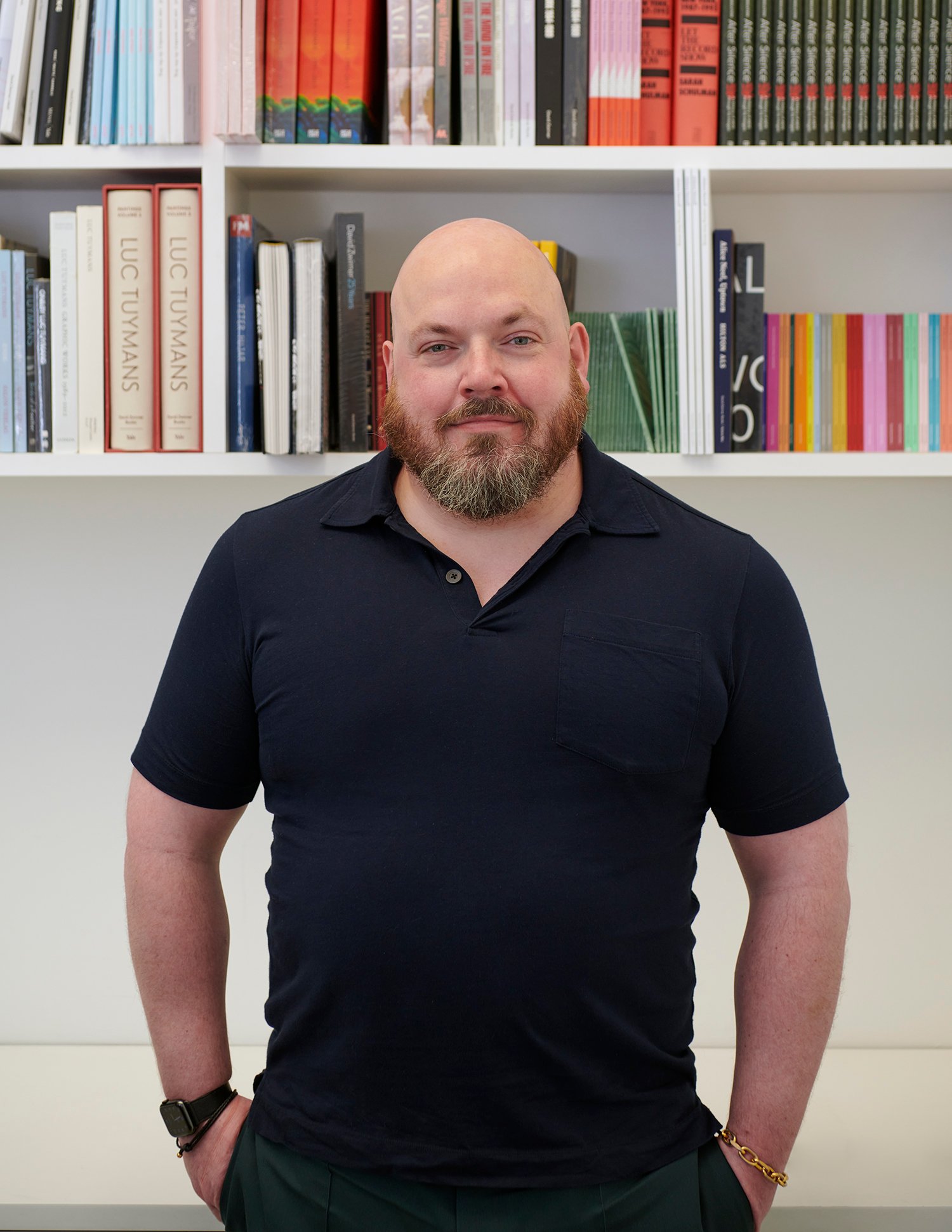
From establishing to scaling, running an art-centered business can get complicated quick. Operations costs and management, tax risk and compliance, and internal structuring are just a few of the numerous facets that go into building long-term success at the helm of an arts organization—and that’s where Art Enterprise Resources comes in.
Art Enterprise Resources was founded in 2023 by James Morrill, with the aim of providing full-service strategic and financial guidance to arts organizations—no matter the size or mission.
Courtesy of Art Enterprise Resources.
With over 20 years of experience working in the art world, including a long tenure culminating in becoming the global chief financial officer at international mega-gallery David Zwirner, Morrill is primely situated to offer comprehensive, pragmatic analysis and planning for both large-scale, established companies and emerging projects alike. Working specifically within the greater art world specifically, Morrill has his finger on the pulse of the art market as well as best practices for creating a sustainable organization model and opportunities for growth.
Following an initial assessment, clients of Art Enterprise Resources can expect bespoke strategic development and implementation guidance, ranging from leadership coaching, financial statement analyzation, and a tailored plan and system for future progress. And Art Enterprise Resources also offers ongoing support, ensuring opportunities to streamline strategy and optimize financials are never missed.
Courtesy of Art Enterprise Resources.
Marking the one-year anniversary since its founding, we reached out to Morrill to learn more about what inspired him to create Art Enterprise Resources, and what is some evergreen advice he has for arts organizations.
What was your primary motivation for founding Art Enterprise Resources? How would you describe its mission?
I had a great job at a great gallery (David Zwirner), where I worked for almost 17 years. David had a lot of trust in me from a young age, and I will always be grateful to him for that. It was almost my entire professional career! I loved it, but during that time, I also received my MBA and lived in the back of my own gallery space. I know the art world has long had more diverse models than the “mega” model; think of the generation of gallerists before (primarily women). I’ve long felt there is value in providing advice to people doing great things, but who may need something more flexible. The art world is generally very light on infrastructure and heavy on inspiration. Good decisions are based on information, not just intuition.
As the company reaches its one-year anniversary, what do you see as your biggest accomplishment thus far?
Mostly, it’s been about convincing people that this is a good idea. There are a lot of individuals consulting in the art market, but there aren’t many offering objective financial and strategic advice. That’s where I think there is a need. I’m proud of the clients I have and the advice I’ve offered. It’s really rewarding to help people find solutions to problems and more efficient systems so they can focus on the business at hand.
With the ever-changing art market, how are you seeing the art world—such as galleries and advisors—currently responding?
I think there is a general atmosphere of worry. It sort of reminds me of 2016, with a sense of uncertainty in the world that trickles down. I also think there are more and more questions as the market becomes more complicated. Artists demand more investment from galleries, but those galleries are concerned about the return. There is increased governmental oversight and compliance. The answers are not simple, but more data and better systems go a long way in aiding decision-making.
Do you have any perennial financial or strategic advice for arts organizations that you can share with us?
Yes. Do nothing without the facts. In other words, if you can get more information, another quote, or take more time, do it. Urgency and desperation are the enemies of good decision-making.
Are there any recent trends you’ve observed, either in the market at large or within organizations themselves, that you find particularly intriguing or exciting?
Yes, actually. I’m generally a little jaded, and I have seen the first generation of artist representation agencies that haven’t quite taken hold yet. However, I think the idea of an artist agency is intriguing, and it’s gaining traction. It’s like the end of the movie studio system; artists want to ensure that their interests are represented in the market as well.
Learn more about Art Enterprise Resources here.